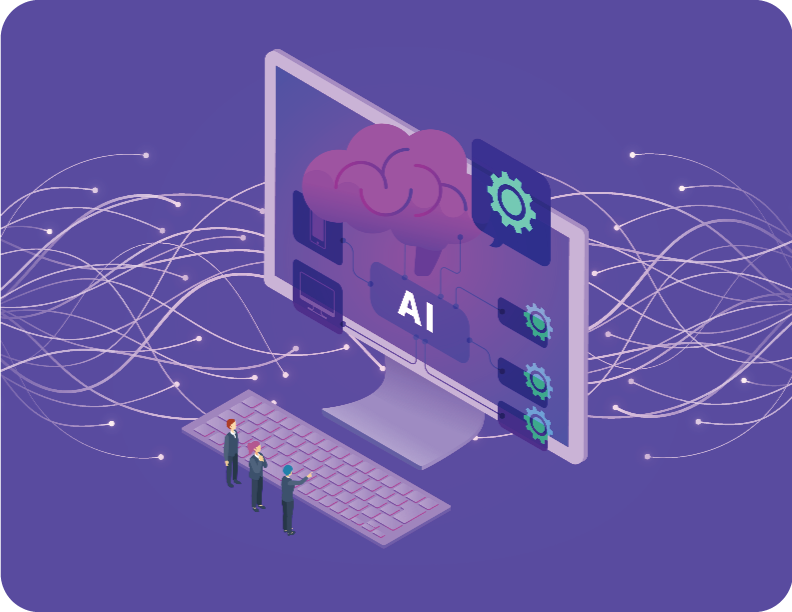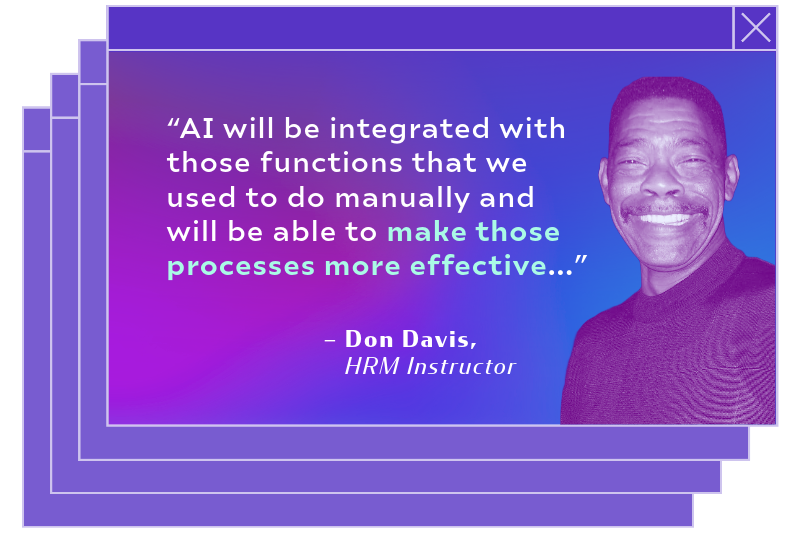‘Employing Equitable AI’: New Human Resource Management Course Addresses Risks and Benefits of Artificial Intelligence in HR Practices
BY ERIN SAINT-HILAIRE

As artificial intelligence (AI) becomes more and more a part of our everyday lives, it’s no longer a question of if AI will impact jobs but how and to what extent.
Around the world, as many as 300 million jobs could be affected by AI, according to a 2023 Goldman Sachs report, with office and administrative support jobs, which can include human resource positions, having the highest proportion of tasks that could be automated by AI.
In fact, a majority of HR leaders are already using AI in their organizations or plan to increase their use of AI in at least one area of HR, according to a recent survey from Eightfold AI.
Taking part in courses like Cal State East Bay’s “The New HR—Employing Equitable AI” is one way current or aspiring HR professionals can stay ahead. The new course, starting this spring, is part of CSUEB’s Human Resource Management Certificate program and aims to teach students how to effectively integrate AI into HR management systems along with how to make sure those processes are not discriminatory.
“From biases in training datasets to ill-considered models, applications of AI in HR can pose severe risks to civil rights,” said course developer and instructor Don Davis who has been teaching in CSUEB’s program for over 35 years. “This course will offer employees and employers a deeper understanding of how AI-enabled tools enter HR, their effects, and appropriate technology, policy, and governance strategies to maximize HR processes effectively and mitigate harm.”

As an HR management professional for 37 years, Davis emphasizes that the basic skillset for HRM isn’t changing, but instead it’s about how professionals use this new technology to apply it to HR processes.
“AI will be integrated with those functions that we used to do manually and will be able to make those processes more effective,” said Davis. For example, AI technology can automate the recruitment process by analyzing resumes, screening candidates, and matching them with job requirements, explained Davis, or AI-driven chatbots or virtual assistants can provide employee onboarding experiences.
Although AI can easily replace the need for employees performing certain tasks, it also allows for HR professionals to upskill and expand their areas of expertise—ensuring the need for the “human” in human resources. As Davis explained, HR professionals will have to become more strategic and technical to effectively work with AI technologies and interpret AI-driven data insights along with monitor performance, accuracy, and fairness of these technologies.
For instance, HR professionals should ensure that AI algorithms are designed and trained to minimize biases based on race, gender, age, or any other protected characteristics, said Davis, and that appropriate data privacy measures are in place to protect sensitive employee information that AI collects.
“AI is here to stay,” said Davis. “You can’t push back technology. It’s disruptive, but it’s here.”
Return to Cal State East Bay Blog »
Human Resource Management Certificate Program
Sharpen your skills and gain a working knowledge of all evolving aspects of the human resource field with a flexible, all-purpose program designed for working adults. Learn more here.
